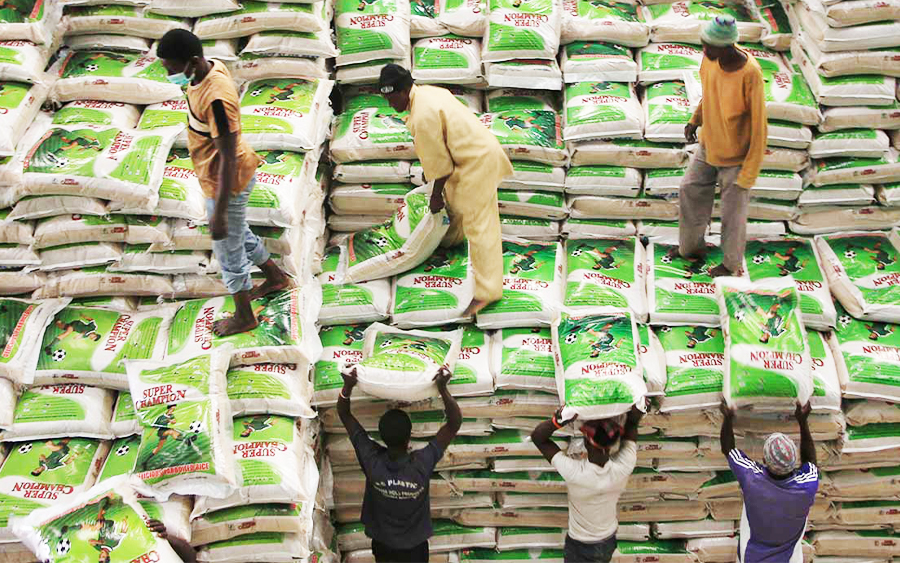The Rice Processors Association of Nigeria (RIPAN) has disclosed that the closure of the Nigeria-Benin border (widely called Seme Border) would save Nigeria over $400 million (N144 billion).
This disclosure was made by the National Chairman of RIPAN, Muhammed Abubakar Maifata, to support the move by the Presidency on the partial closure of the Nigerian-Benin Border.
[READ ALSO: Seme Border partial closure to restrict rice importation – Buhari]
The details: According to RIPAN, the move to partially close the border was needed to address the rising case of rice smuggling into Nigeria from neighbouring countries. The group added that the country would have lost $400 million to smuggling of foreign rice through the land borders.
Speaking in Abuja on Thursday during an interview session with Journalists, the RIPAN Chairman stated that over one million metric tonnes of the commodity was in wait to be smuggled into the country from Benin Republic before the end of the year. Hence, the decision to carry out surveillance on the country’s border would do the country well.
Also, Maifata said the closure of the Nigerian-Benin border would help curb the menace of rice smuggling and boost the productivity of operators in the sector.
Rice smuggling: While explaining the severity of rice importation, Maifata disclosed that from January to date, over one million metric tonnes of rice were brought into Benin mostly from Thailand and India.
“We came to let the whole world know that we support this action and we are with the government in this journey. We will support them with all what we can, in terms of information and statistics – whatever they need from us – we are ready to do it.
“We want the whole nation to support the government in this fight. It is for the benefit of Nigeria. I want you to know that the insinuation that we cannot feed ourselves with rice is not true.”
Emphasizing the readiness of the rice millers to ensure sufficient domestic production of rice, Maifata stated that the ban had opened up opportunities for the industry and all the rice mills in the country had begun to produce at 100% production capacity.
“We as an association met yesterday and tasked ourselves to produce massively so that we can fill the gap voided by the smuggling activities. And we are up to the task and are determined to do it. By this action of government, it has opened up many things within this week of the closure of the border.
“All the mills are now producing at almost 100% capacity. Procurement of paddy has resumed by the millers and farmers are happy because they are expecting new harvests in November.”
The backstory: Nairametrics earlier reported that the Seme border, a major border between Nigeria and the Benin Republic remained closed on Wednesday without formal notice, leaving thousands of people and vehicles stranded on both sides.
- According to a source, the border which is believed to be the busiest land crossing in Nigeria was shut after some truckloads of prohibited tramadol and codeine were intercepted in Lagos on August 16.
- President Muhammadu Buhari has, however, disclosed that the exercise, code-named, ‘Ex-Swift Response’, which resulted in a partial closure of the border was to restrict the massive illegal importation of rice into Nigeria.
Meanwhile, following the partial closure of the border, stakeholders have cautioned the government not to destroy businesses at the border.
Speaking at the pre-Annual General Meeting media briefing of the association in Lagos, the President, Manufacturers Association of Nigeria, Mansur Ahmed, said although the government might have the good intention of protecting the businesses in Nigeria, it must also ensure that the action did not affect Nigerian entrepreneurs operating genuine businesses on that axis.
[READ MORE: Buhari’s CBN policies may drag Nigerian economy into crisis – Fitch]














